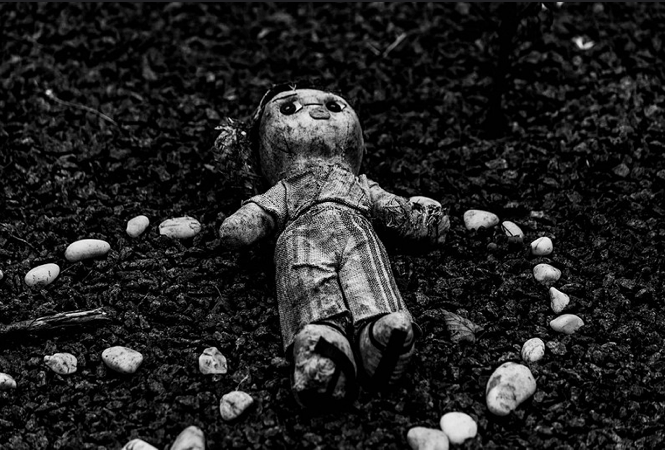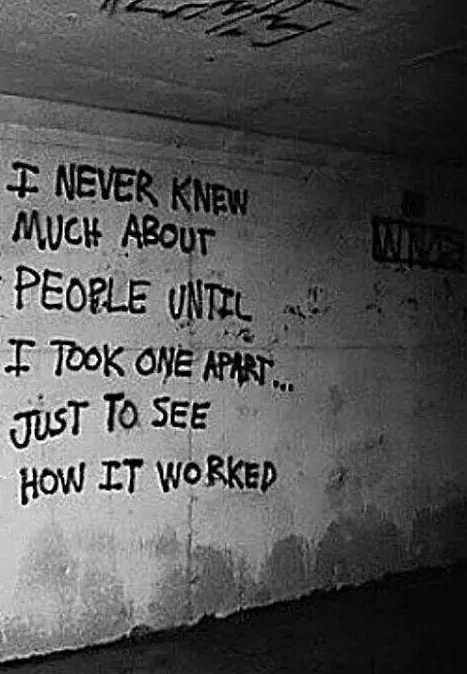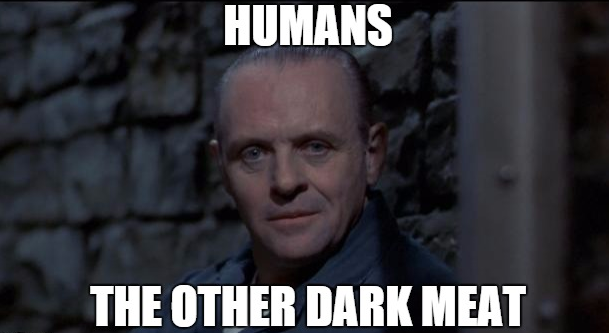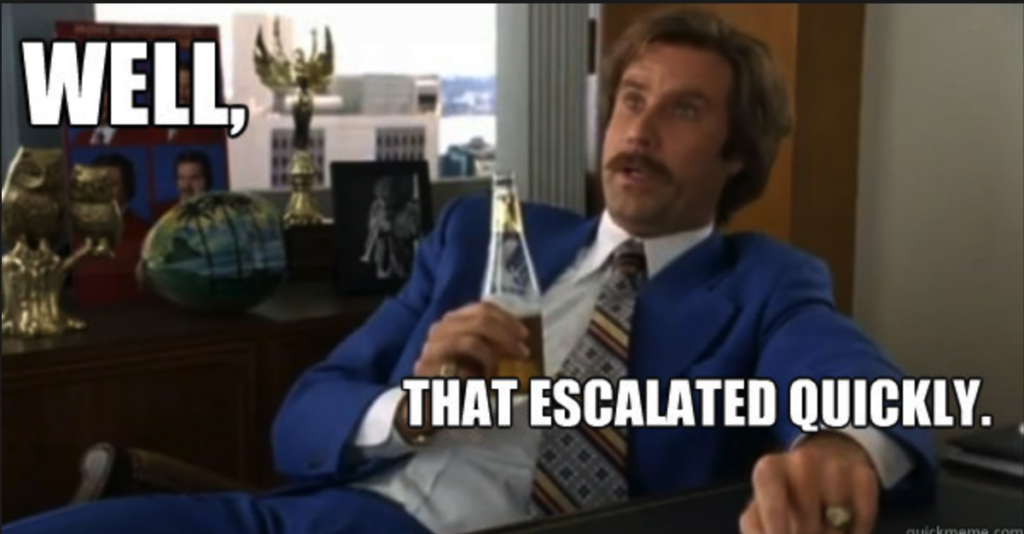
Horror is in the HOUSE today…and over the weekend for many since, um, HALLOWEEN! So, today I’d like to talk about horror as a genre.
Horror gets a bad rap. Most people automatically default to brainless, low-budget slasher movies. People somehow forget that we can thank horror for some of the greatest works of literature from Mary Shelly’s Frankenstein to Bram Stoker’s Dracula to Shirley Jackson’s The Haunting of Hill House.
***For the record. Horror as a genre is still very much alive. It’s just that, after all the 70s slasher movies, these books have been re-shelved as speculative fiction. Books once listed as ‘horror’ we can now find under mystery, thriller, suspense, science fiction, paranormal fantasy, etc.
Horror has always pushed boundaries while shining a light on what we as a culture fear the most. If we can forget the chainsaws and college coeds who trip a lot, horror can teach us all how to be better authors…no matter which genre we write.
This genre fascinates me simply because (as I mentioned earlier), I believe it is the most difficult genre to write. Sure it was probably easier back in the days that movie audiences ran screaming from the man in a really bad plastic ant outfit. But these days? As desensitized as we have become? Unsettling people is no simple task.
That’s why I’d like to talk about it today because no matter which type of fiction we write, we can learn a lot from what horror authors do well.
Horror Evokes Reflection
Powerful fiction mines the darkest, deepest, grittiest areas of the soul. GREAT fiction holds a mirror to man and society and offers messages that go beyond the plot. A really great story should, ultimately lead to some form of self-reflection.
Elisabeth Kubler Ros once stated:
There are only two emotions: love and fear. All positive emotions come from love, all negative emotions from fear. From love flows happiness, contentment, peace, and joy. From fear comes anger, hate, anxiety and guilt.
It’s true that there are only two primary emotions, love and fear. But it’s more accurate to say that there is only love or fear, for we cannot feel these two emotions together, at exactly the same time. They’re opposites. If we’re in fear, we are not in a place of love. When we’re in a place of love, we cannot be in a place of fear.
This means, the more we understand fear, the deeper our writing becomes, the more meaningful, visceral, and profound. Yes, REGARDLESS OF GENRE.
In love stories, fear might be of being alone, of never finding ‘the one’ or even losing ‘the one.’ In literary fiction, the fear can be of remaining the same, or of regressing, or of failing to evolve and learn the critical lesson provided by the story problem.
Fear is the lifeblood of ALL fiction because conflict is always generated by fear.
The protagonist wants something BUT THEN… The more intense the fear? The higher the stakes become? The faster the reader turns the pages.
What Horror Says About Conflict

Here is where we need to be careful. There is a fine line between a bad situation versus authentic conflict. This line makes the difference between a meh novel versus something people hold onto and read and reread.
It is what makes the difference between a B horror movie that is utterly forgettable, versus a horror staple that endures for generations (Um, Dracula?).
In horror, bad situations can be monsters or an ax-wielding psycho, but, without authentic conflict added in, it quickly devolves into a sort of wash, rinse, repeat. Oh, he chopped up a teenager! Now two teenagers! Now he skinned them and danced in a woman suit made from their flesh!
This is the basest form of horror, the horror that depends on shock value (gore), and NOT the type of stories I am thinking of while writing this blog.
And before anyone says, “But that is horror, it doesn’t apply to me!” Be careful. I get a lot of new fiction that it is simply bad situation after bad situation—and another car chase—and the reason this falls flat is that the ‘badness’ is purely external. The characters are passively enduring ‘bad things happening’ and the writer leaves it there.
So what makes it conflict and not just a bad situation?
Monsters & Men

I liken humans to a tea cup. Whatever we are filled with is what will spill out when we are rattled. When the heat is on (story problem) do we rise to the occasion or is our darker self revealed? Or both?
A great example of this is Stephen King’s The Mist. Sure it is a monster story. Scary strange mist, creatures in the mist, tentacles, blood, OMG! And if King had made the focus of the story the aliens, we would have a pretty forgettable movie.
Oooh a giant tentacle!
What now?
A BIGGER TENTACLE!
What now?
Have it eat someone!
Oooh! And now?
Have it eat EVEN MORE people!
ZZZZZZZZZZZZ
Horror & Tedium
You can clearly see how this would have become a seriously tedious story if it simply relied on a string of ‘worsening’ surface situations. But King is too smart for that. No, he appreciated what I talked about a moment ago.
Sure humans are a nice enough bunch so long as there is food and shelter and the power works. But take away the conveniences. Scare people, really scare them and we get to see who they really are.
***Yes I am thinking about every person who bought ALL the toilet paper last year when COVID hit O_o
We take that external problem and make it internal.
The source of conflict in The Mist has far less to do with the aliens outside and much more to do with what that outside problem does to the people trapped in the grocery store.
We see the characters fall all along the spectrum. The ordinary and unremarkable cashier risking his life to help others contrasted against the ‘good church-going woman’ escalating to full scale cult leader (human sacrifice to appease the beasts outside included) in less than 24 hours.

The monsters inside become far scarier than whatever is outside.
If we think about it, this is what makes for a good ghost story, too. It is less about what the ghost is or isn’t doing and more about what it is revealing about those being tormented. A fantastic example of this is Prisoner of Hell Gate which I recommend any time, but especially for those already looking for some really great Halloween reading.
Strand a boat full of college students on an island where Typhoid Mary died…then sit back and watch the fireworks. Again, the horror is less to do with the island and more to do with what the peril brings out in the people.
I also recommend Dennis Lehane’s Shutter Island and Dean Koontz’s What the Night Knows.
These Lessons Apply to ALL Great Stories
But as I mentioned, this ‘turning the external internal’ is the crux of all great fiction. Toss in a problem then watch what it does to the people around it. In Big, Little Lies (general fiction) a Kindergarten schoolyard rumor escalates to murder.
The story really has nothing to do with the murder and more to do with how a simple little rumor has the power to unstitch families and unravel lives. It is the rumor that brings out the best and the worst in people.
Fiction is about problems and then putting on the pressure.
The story problem serves as a crucible. We can make our story forge so hot it rivals the surface of the sun, but unless we toss the character(s) in it? Doesn’t matter how hot it is. It is our job (no matter the genre) to poke and prod and expose that which people fear.
Hone in on the pain points and THAT is what makes for dimensional writing—from the fear of outliving our children (Steele Magnolias) to the fear of being invisible/taken for granted (Fried Green Tomatoes) to the fear of crossing that threshold separating the child versus the adult (The Labyrinth).
Writers are brokers of fear 😉 . Buuut, excellent horror shows us fear is only part of the recipe. We tap into what people fear BUT THEN show how fear can be harnessed for good.
Fear and Fiction
What are your thoughts? What are some of your favorite horror books/authors/movies? I am a HUGE Koontz fan.
I tend to like campy horror movies since not much really scares me. I LOVE The Babysitter, The Cabin in the Woods, Tucker & Dale vs. Evil, and Army of Darkness.
For those who maybe eschew horror, can you at least see how these tools might enrich your fiction?
I LOVE hearing from you!
To prove it and show my love, for the month of NOVEMBER, everyone who leaves a comment I will put your name in a hat. If you comment and link back to my blog on your blog, you get your name in the hat twice. What do you win? The unvarnished truth from yours truly. I will pick a winner once a month and it will be a critique of the first 20 pages of your novel, or your query letter, or your synopsis (5 pages or less).
***I will announce September and October’s winners next post.
CLASSES
The Edge: How to Write Mystery, Suspense & Thriller is available ON DEMAND (sign up HERE and use Thrill10 for $10 off). The recording turned out FANTASTIC, so check it out.
***I will be listing new classes so check them out next post.








6 comments
2 pings
Skip to comment form
I love this post! Horror is one of my favorite genres. My old school favorites are Amityville Horror, The Stand, The Exorcist, The Fury, Silence of the Lambs, and The Shining. Favorite authors Stephen King, Dean Koontz, and Anne Rice. I also consider Lisa Gardner as a horror writer, although some people probably wouldn’t agree. Her book “Find Her” was totally awesome.
I don’t read horror and can’t watch horror, but I’ve been thinking about the genre a lot lately for many of the reasons you mentioned. It takes skill to play on the fears of the reader to the very end. You mentioned Shirley Jackson. I read The Lottery in high school. Decades later I can recall that growing sense of dread. You knew something bad was coming, but you didn’t know what. I write romantic suspense. When I write darker, I’d like to be able to better tap into the Fear factor that you mentioned. You’ve given me more to think about. Thanks!
Not a horror fan, but I get it! A REALLY helpful post (always worth reading).
One of the scariest writers of horror is Ramsay Campbell, whose British Lovecraftian novels still have me looking out the corner of my eye over twenty years since I last read them. Something about a drive through the English fens, a shadow racing beside the road keeping pace with you, and when you look it’s on two legs and grinning… eek!
Always good to hear this — and *The Mist* really shows it perfectly. Horror isn’t about what the monster can do (that would be action, *Aliens* more than *Alien*). Horror is about the actual horror the threat *causes*, and what kind of monsters it brings out in people. So that it’s a victory if they stop denying, panicking, in-fighting, and generally stopping themselves from taking whatever chance they still have.
Assuming we let them have one.
I am a horror fan. Not the slice and dice kind but the Shirley Jackson kind—Haunting of HIll House and We Have Always Lived in the Castle (the creepiest). I enjoy Stephen King as well. I had never viewed horror from the perspective you’ve presented here, and I must say it is eye opening for me. I will be looking at my SyFy from a totally different angel from now on. You are always such a great help. Thank you!
[…] CONTINUE READING HERE […]
[…] How Horror Can Improve Our Writing in ANY Genre […]